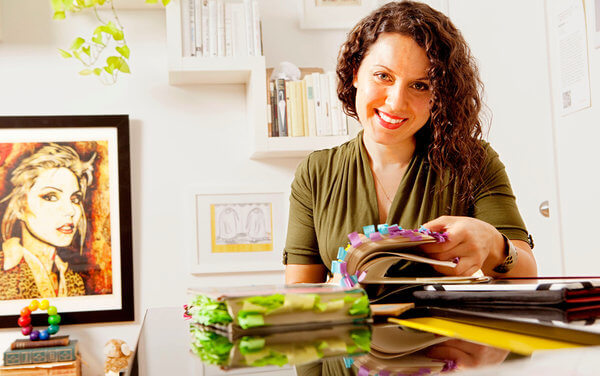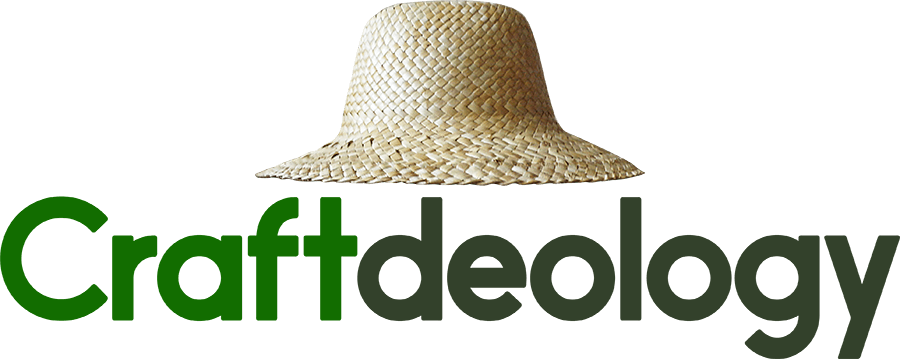It’s the age of information — everything we want to learn is readily available on the Internet. From the recipes we want to cook, DIY projects we want to try, to the burning questions we want to answer, we can now easily google them.
Free access to information, however, doesn’t always mean better. The truth is, the more information we have, the higher the chance we get confused and misled. The higher the chance we become hypocritical. Why?
In her timeless animated essay, “Wisdom in the Age of Information and the Importance of Storytelling in Making Sense of the World,” Maria Popova says:
“We live in a world awash with information, but we seem to face a growing scarcity of wisdom. And what’s worse, we confuse the two.”

Photo taken from brainpickings.org
The Problem With Too Much Information
Maria Popova puts it this way: “More and more information without the proper context and interpretation only muddles our understanding of the world rather than enriching it.”
As creatures wired to consume, we are prone to react. The moment we consume a new information, we absorb, believe, and share it without second thoughts. Of course, we’re humans.
Here are examples:
- You used to believe in the power of love, but not anymore after reading some “broken relationships” stories.
- You used to believe in following your passion, but not anymore after reading an article about “Passion Won’t Bring you Money.”
- You used to believe in the power of imagination, compassion, and positivity, but not anymore after reading blog posts or watching videos narrating opposing views.
The media conditions us to believe in certain things. Anything we perceive as true or false may change once we consumed an information that contradicts our present belief system. Sometimes it’s helpful. Sometimes it’s not.
But do we really need to believe all of them?
Most of us fail to realize that we have the freedom to question, challenge, and research.
It Starts with Understanding
First thing, let’s try to understand why we quickly absorb information. Why so easy for us? This happens, as Maria Popova points out:
“Ours is a culture where it’s enormously embarrassing not to have an opinion on something and in order to seem informed, we form our so-called opinions hastily, based on fragmentary bits of information and superficial impressions rather than true understanding.”
It’s quite embarrassing, but it’s the truth. Our present culture — the information age — is the reason we feel the urge to quickly absorb information, and then form opinions.
We want to appear more informed and knowledgeable than our friends — despite the fact that we don’t completely understand a certain subject.
We latch onto these bits of information, making them as new anchors of our reality.
Here’s a common scenario that happens during a presidential campaign: You read a short story about the life of a political candidate and then you share it.
Sharing isn’t the problem. The problem is you claim he’s the best candidate, though you don’t know other candidates’ stories. Is that story true? How sure are you?
Other examples:
- Someone misinterpreted an article about tips to earn more money.
- Someone misinterpreted the Law of Attraction.
- Someone misinterpreted smart work as hard work.
- Someone misinterpreted YOLO (You only lived once).
- Someone misinterpreted the follow your passion cliché.
- Someone misinterpreted an article about success, wealth, and business.
Some information are true, some are misleading. Some information are helpful, some are a waste of time. The Internet is an ecosystem of useful and useless.
Be careful. Be mindful.
If you don’t fully understand what you’ve read or heard, chances are, other people won’t understand it too.
And that’s okay. Because you don’t need to form opinions hastily. You don’t need to appear knowledgeable.
Instead, open your mind and challenge the new information. Find someone to justify your opinions. Discuss it with a friend or a mentor to gain a deeper understanding and see a different perspective.
Information, Knowledge, and Wisdom
We think that having more information makes us more knowledgeable and wise. But that isn’t always the case. While you can read blogs or watch videos all day, it’s pointless if you only take something out of context.
Maria Popova defines the differences between information, knowledge, and wisdom as a ladder of understanding [emphasis mine]:
“At its base is a piece of information, which simply tells us some basic fact about the world. Above that is knowledge — the understanding of how different bits of information fit together to reveal some truth about the world. Knowledge hinges on an act of correlation and interpretation. At the top is wisdom, which has a moral component — it is the application of information worth remembering and knowledge that matters to understanding not only how the world works, but also how it should work. And that requires a moral framework of what should and shouldn’t matter, as well as an ideal of the world at its highest potentiality.”
Information is the key to gaining knowledge, but knowledge isn’t the only key to gaining wisdom — it’s just one piece of the puzzle.
Wisdom, in any way, is something gained from years of experience, introspection, experimenting, taking actions, stepping out of comfort zones, switching perspectives, self-education, mentors, learning from mistakes, reading + applying what you’ve read, and failures.
Here, she explains that information and knowledge are pointless without wisdom.
Information is having a library of books on shipbuilding. Knowledge applies that to building a ship. Access to the information — to the books — is a prerequisite for the knowledge, but not a guarantee of it.
Once you’ve built your ship, wisdom is what allows you to sail it without sinking, to protect it from the storm that creeps up from the horizon in the dead of the night, to point it just so that the wind breathes life into its sails.
Moral wisdom helps you tell the difference between the right direction and the wrong direction in steering the ship.
When presented with new information:
A person with wisdom avoids judgment. Instead, they try to understand the whole story. No rage, instead they empathize and switch perspectives. And they don’t share immediately. Instead, they challenge the new information and investigate. They do more research.
Ask yourself:
“Am I only consuming information without understanding? Am I sharing information even though I don’t completely understand it? Am I reacting to every story without switching perspectives? Do I have the wisdom?”
Do your research. Ask questions. Seek to understand. Watch the animated essay here.
